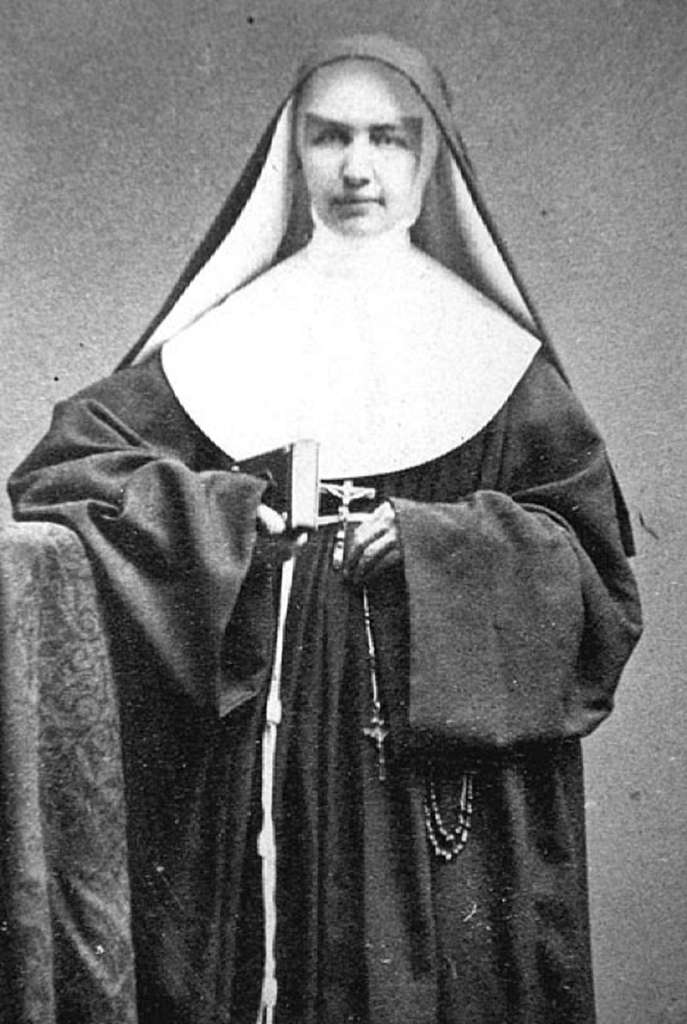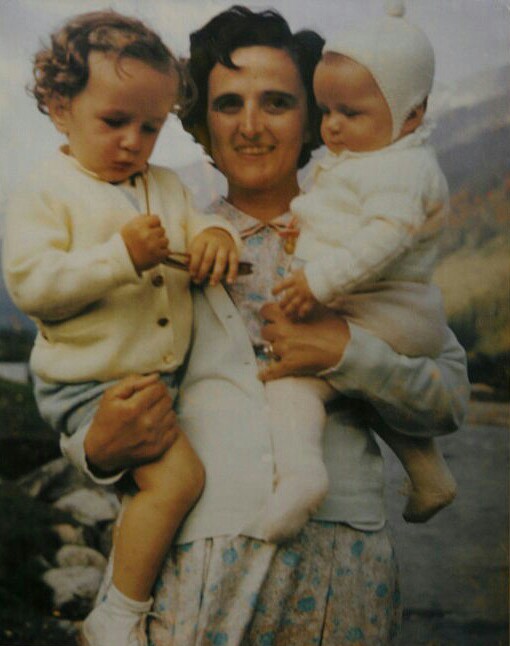March 1, 2024 // Perspective
Understanding the ‘Feminine Genius’ of All Women
“The hour is coming, in fact has come, when the vocation of women is being acknowledged in its fullness, the hour in which women acquire in the world an influence, an effect, and a power never hitherto achieved. That is why, at this moment when the human race is undergoing so deep a transformation, women imbued with a spirit of the Gospel can do so much to aid humanity in not falling.”
These words from the closing message of the Second Vatican Council should continue to stir the hearts of women to recognize their dignity in God’s design, knowing that their mission is necessary to the thriving of the human race – which, in our age, continues “undergoing so deep a transformation,” and needs the message of the Gospel proclaimed by women who have allowed its power to take root and flourish in their own lives.
Pope St. John Paul II spoke about “the genius of woman” in her unique strengths; through them she makes the world “more human” and is essential to building a culture of life and love – in the Church and the world. Her “feminine genius” gives life – physically and spiritually – by her particular focus on the person. She devotes her attention more readily to persons rather than things, prioritizing wisely – because, quite simply, people are more important than things. Absent her influence, humanity runs the risk of falling into a “culture of death,” whose characteristic feature, according to John Paul II, is a preoccupation with efficiency. Pope Francis has referred to our own as a “throwaway culture,” where even human beings are deemed disposable when their care is inconvenient.
Her emphasis on human beings – and knowing that being present to them is of great value in itself – calls labor and activity back to its purpose: serving human flourishing. By her diligence, she protects work and progress from becoming merely “efficient”; her influence is needed in every sphere of life, connecting abstract ideas to their concrete expression down to the practical details, all at the service of persons, who fill her worldview on a daily basis and help her to see others as an extension of those she knows and loves.
The “feminine genius” reflects the heart of God in four important qualities, rooted in the special creation of her body and soul for motherhood, natural and spiritual: receptivity, maternity, sensitivity, and generosity. The importance of her nature for family life is obvious; she provides her own body as a place of welcome for her children and nurtures the development of those in her care, making her home a place that extends its welcome to others. Throughout the history of the Church, and still desperately needed today, she has seen persons with her heart – the whole person – with a sensitivity to their needs and a generous offering of not just material resources but herself to accompany others with compassion.
Any study of Catholic women throughout the history of the Church reveals the beauty and power of the feminine genius. Consider St. Marianne Cope’s generous response to the plea for aid to the lepers of Molokai. Inspired by the Holy Spirit’s prompting of her heart, she said, “I am hungry for the work of God, and I wish with all of my heart to be one of the chosen ones. … I am not afraid of any disease.” She departed New York with several members of her religious community and served the isolated and abandoned for decades, miraculously preserved from leprosy herself.
Or St. Teresa of Calcutta’s lifelong receptivity to the voice of God, hearing what she described as “a call within a call” to begin a new religious community devoted to caring for the “poorest of the poor.” Her love for Jesus compelled her to provide a home for those most neglected – the dying poor – and she inspired many women to join in her mission to satisfy His thirst for souls. While her work attracted the attention of the world, she was careful to point them to its source: her sisters attended Mass daily and offered an hour of Eucharistic adoration before they began their labor. “We are not social workers,” she said, “we are contemplatives in the heart of the world.”
St. Gianna Beretta Molla – a wife, mother, and physician – delighted in the unique opportunity she had in her profession to honor the presence of God in her patients, treating them with dignity and respect. Her lifelong fidelity to the Gospel culminated in her giving her life for her youngest child growing in her womb, insisting to the end that her physician “choose the child.” She spoke of her decision as the serious circumstances of her pregnancy progressed: It was her responsibility to leave her children the legacy that only she could – their mother loved them and would have given her life for any one of them.
Blessed Chiara Luce Badano was a vibrant young woman striving to be the spouse of “Jesus Forsaken” in the Focolare movement who contracted bone cancer and embraced her suffering joyfully as her path to holiness. As she was confined to her bed, she spoke to the value of suffering: “I still have my heart, and with that I can love.”
Many holy women were pioneers in Catholic education at every level – St. Elizabeth Ann Seton, St. Theodore Guerin, St. Katherine Drexel, to name a few – have left us a rich tradition of formation for young disciples, including those on the margins of society.
A woman’s genius lies in her perception of the whole person and participation in the ministry of Jesus by serving the one right in front of her. Sometimes this service takes the form of silent accompaniment, affirming the value of the other simply by giving one’s time and attention. In our parishes and communities, there are many examples of such women – who, like all the saints, are growing in holiness by loving the Lord – living with a sensitivity to others’ need to be received, known, and loved. What gifts these qualities are to the Lord Himself when turned toward Him in prayer!
He, who is a Divine Person, awaits the return of His loving gaze from a soul that longs to be with Him. To these, St. John Paul begins his “Letter to Women” with deep thanks for their presence in every sphere of life – as wives, mothers, daughters, sisters, workers, and consecrated women: “Thank you, every woman, for the simple fact of being a woman! Through the insight which is so much a part of your womanhood you enrich the world’s understanding and help make human relations more honest and authentic.”
Jessica Hayes is a Consecrated Virgin who serves as the Pastoral Associate for Liturgy at St. Vincent de Paul Church in Fort Wayne.
The best news. Delivered to your inbox.
Subscribe to our mailing list today.










